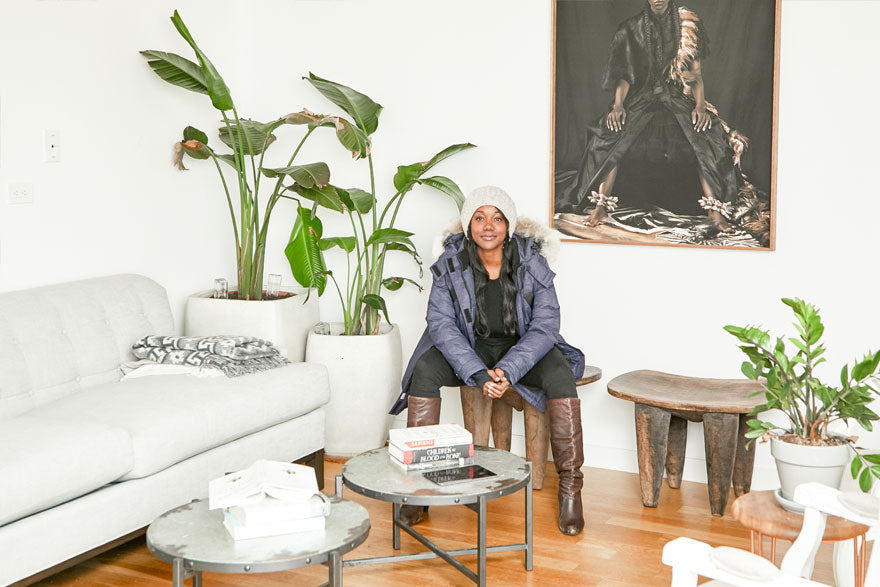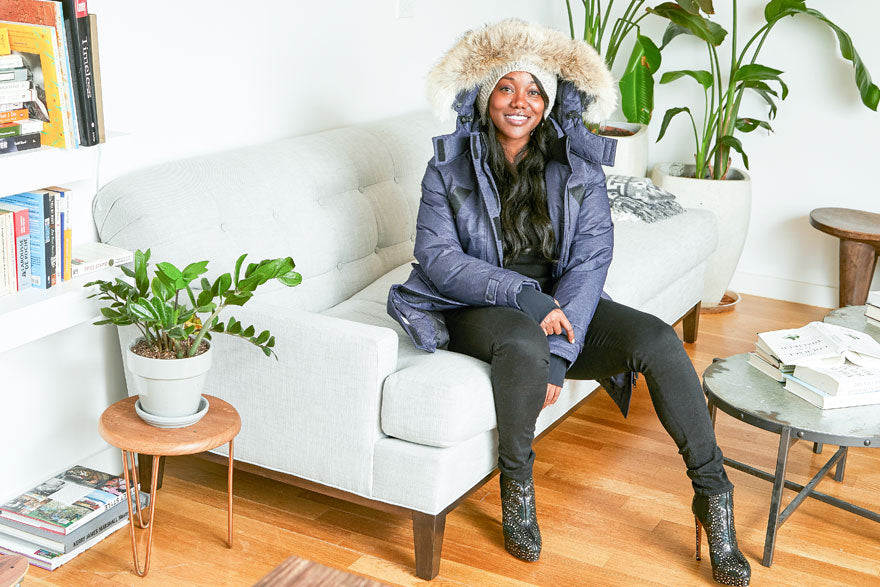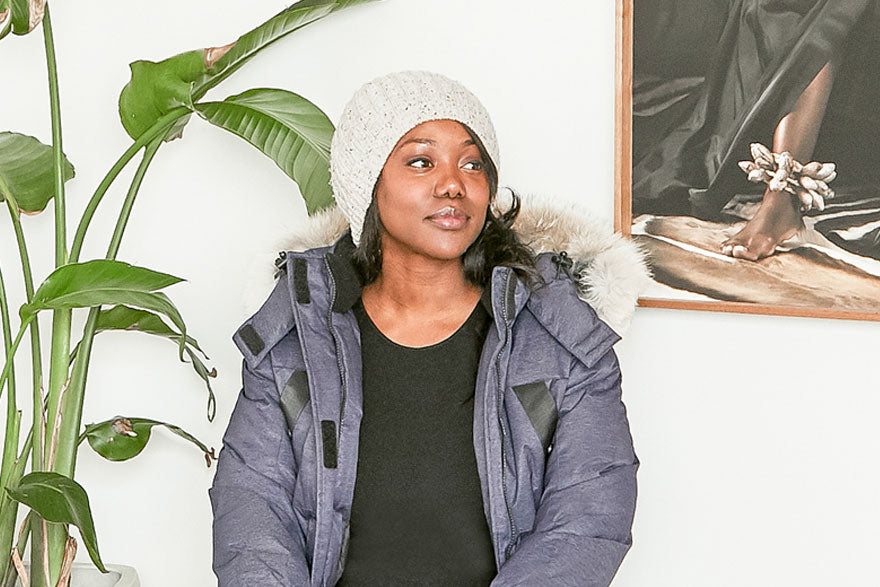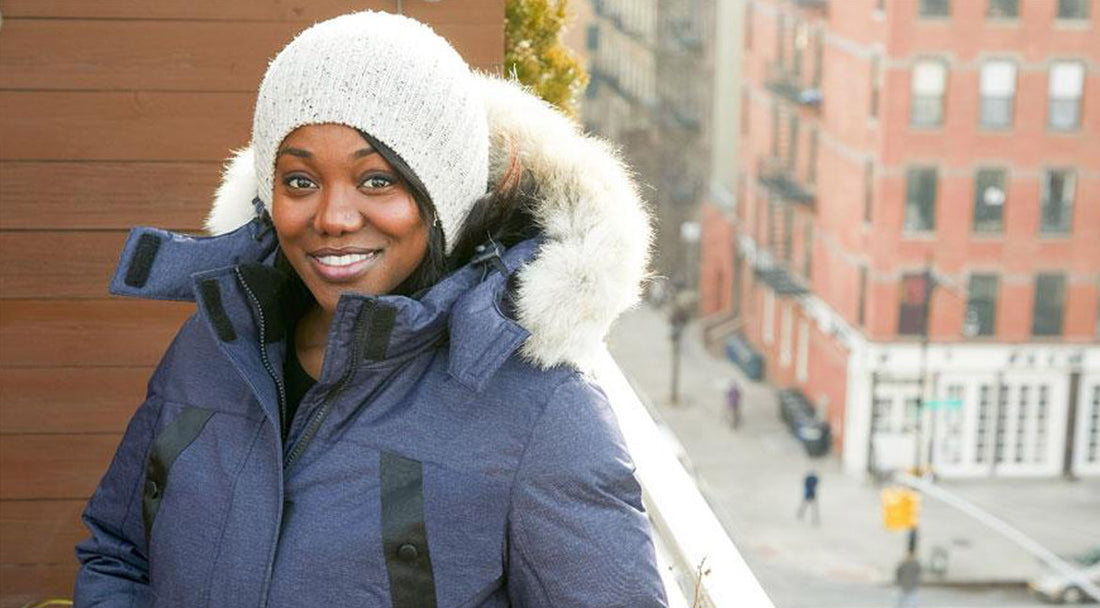Ambition has never been a problem for therapist, entrepreneur, and media personality Bea Arthur. Growing up in Houston as the daughter of two entrepreneurs, she knew what success looked like and the hustle it took to achieve it.
The only problem was that she didn’t have the direction to balance out that drive. After receiving her BA from Emerson College in Boston, she moved to New York City—as many young people do—to achieve her dream. But, though she knew what she wanted the end result of her success to look like, the way to get there was less clearly defined.
Jumping into the fray, she worked at Bloomberg, at art galleries, as a personal trainer, and in real estate. In none of these professions did she find the harmonic convergence that would lead her down her own path to success—but she did find what she was good at. “What was consistent was that all of the jobs I was attracted to were client-facing,” she remembers.
Taking that knowledge, she got a dual Masters in Counseling and Clinical Psychology from Columbia University and quickly found her place as a counselor and therapist. But it wasn’t until she had the idea to create Pretty Padded Room (later known as In Your Corner), a women-centric community that made therapy available online, that she found a job that balanced her entrepreneurial spirit with her nurturing personality.
In doing so, she became the first African American woman admitted to Y Combinator, the world’s most prestigious start-up incubator, and she has since gone on to be a TedX speaker and Forbes contributor. She was also named an “Entrepreneur To Bet On” by Newsweek and currently mentors other up-and-coming entrepreneurs.
In 2016, she decided to move on from In Your Corner and this past November unveiled her new company, The Difference, which is Amazon Alexa’s first mental health skill to connect you to a live, human therapist within 30 minutes or less—no matter where you are in the world.
Here, she opens up about the importance of finding balance with what you do and who you are.

FINDING YOUR TRIBE
Career track. It’s a term that gets thrown around a lot, even in today’s age of more diverse job paths. But when it comes to Arthur’s rise to the ranks of CEO, her route has been more like a roller coaster than a steady climb up the corporate ladder. That’s because instead of treating her first jobs out of college as the things that would define her, she saw them more as a litmus test for her abilities and an avenue to find her passion so she could define herself.
“In my 20s, I had no idea what I wanted to do but I was ambitious, so I tried a lot of different industries to see where I’d find my tribe,” she explains. “I crashed and burned a lot.” When one of her real estate colleagues mentioned that Arthur was good at sales because people liked talking to her and they trusted her, Arthur’s sense of what she should do with her life started to take shape.
“That’s when I realized, ‘I’m meant to be a Professional People Person!’” she remembers. “I naturally love interacting with people, I love learning why they do the things they do, and seeing what they’re capable of.”
To find out what she was capable of, she shadowed a Psych class at Columbia, decided she had found her calling, and threw her hat into the ring at the Ivy League institution. “It was the only school I applied to, and I got in. My first day of class, I knew I was right where I was supposed to be,” she resolves. “I will do this work for the rest of my life.”
Having found her own calling didn’t mean her success was a given. Far from it, actually. But it’s not the countless setbacks that stay with her. It’s the lessons she learned from them that does. “Honestly, I’m sure at the time, each one was devastating and painful, but it’s always temporary and it always gets better,” she says, disclosing an important bit of advice. “Just focus, stay positive and persistent, and ask for help when you need it.”
Some of these downturns were the result of outside forces, but for some of the speed bumps, the causes rested squarely on Arthur’s own shoulders. Thinking back, she says that her overthinking a situation or not giving her intuition a chance to guide her in the right direction caused many of the problems.
“Now I always trust my gut. Before I’d go back and forth and overanalyze, but when I look back, every time I had to make a tough decision, I always wish I’d just made it sooner,” Arthur pronounces. “Humans are the only animals that deny their instincts. I consult my advisors always, but I can only trust myself to defend my decisions.”
This isn’t to say that Arthur thinks her opinion is the only one that matters or that she can do everything all on her own. It’s quite the contrary, actually. Like reaching equilibrium is important to finding a healthy mental outlook on your life, Arthur understands the importance of surrounding herself with a strong staff. That’s why when it comes time to give advice to up-and-coming entrepreneurs, one of her key points is always, “Your team is everything.”
She cautions that this statement can be taken both as a positive or negative.
“I’ve had amazing employees who save the day every time it’s crunch time. And I’ve had employees who have literally stolen from me and sabotaged the business. You have to keep a close eye and a tight leash when the team is small. One person can kill a company.”

CHANGE FOR THE BETTER
Creating a meaningful change. That’s what it means to be an entrepreneur. Interestingly, that’s also the goal of therapy. The similarities don’t end there. A hindrance for someone starting a business is that customers are so used to the conventional marketplace that they won’t change to embrace something new, even if it’s better. When it comes to therapy, the entrenched negative connotation of the word is enough to keep some people from giving it a go, even though they would benefit from it.
As a therapist and an entrepreneur, Arthur couldn’t help but see the connection between her two passions. That’s probably why no one in recent memory has disrupted the mental health industry quite like her. Take Pretty Padded Room/In Your Corner, her first foray into the therapy business. Instead of going the super-serious route, she decided to zig when everyone was zagging and added a comic touch with the company’s tagline> "A nice place to go crazy.” Heck, even her YouTube show was called “You’re Not Crazy.”
Not only did this disruption of the industry norm set her apart, but it also up-ended who and why people were getting help for their issues. “I want to change the conversation about what therapy is, and whom it’s for,” she explains. “The reason life coaches have been able to cannibalize the industry is because they have better branding. No one wants to dwell on their problems, but therapy helps you solve them.”
While others were demonizing the Internet for keeping people apart and causing problems like depression and feelings of inadequacy, Arthur chose to look at the web’s connectivity as a source for doing good. So again she broke with the norm and created virtual sessions that allowed people to instantly get the treatment they needed.
Technological. Immediate. Accessible. Flexible. Round the clock. It’s almost hard to count all the ways that Arthur has helped change the mental health industry and altered how people perceive it. But no matter how the face of the business changes, Arthur never loses sight of the core tenets of therapy and reason she enacted all these changes in the first place and continues to evolve the industry with projects like The Difference.
“People need to know how to talk about their feelings. I get that it’s uncomfortable so I always try to create a judgment-free zone, a place where it feels good to let it all out,” she says. “With therapy, your secrets are safe with me—it’s literally a legal requirement—so I just like to show that it’s not all bad. We’ll laugh, we’ll cry, but you’ll be better at the end of it.”

FINDING DOWNTIME
All day long Arthur helps people find balance in their lives. But when it comes to her own life, it’s more “Do as I say” than “Do as I do.” “I do not practice what I preach!” she exclaims. “At the moment, I work seven days a week and regularly have 12-hour days. But it’s temporary. I’m obsessed with what we’re building so it’s the only thing I care about.”
Well not the only thing. She may work hard at the office, but she also works hard to make time for the special people in her life. This not only helps her offset the demands of her go-go-go work schedule, but she also notes that being around folks whose company you enjoy is a much better way to get that vigor you need to sustain those long days at the office rather than being a couch potato.
“I’m really lucky to have a close relationship with my family, a lovely lover, and a tight knit group of friends that keep me grounded and focused on what matters,” she reveals. “I used to be the biggest flake with my friends and would go into airplane mode and hibernate all weekend to recover, but I’d still have no energy. Turns out my relationships recharge me more than Netflix and chilling!
It also helps she lives in the city that never sleeps so when those 12-hour days do end there are still plenty of options for living it up even though the sun has gone down. “New York is a great place for group activities, there’s always a museum party or live music shows to see,” she notes. “I make it a priority to make the most of the weekends and get out of the house and be social.”
When she does get some alone time, she makes sure to optimize both her mental health and her physical well-being knowing that they often go hand in hand. “I love listening to new playlists and podcasts while cooking or cleaning the house—it’s surprisingly effective at reducing stress and makes me feel accomplished,” Arthur says. “Also, I try to work out at least four times a week; boxing, Pilates, and lifting heavy weights are my faves.”
While hitting the gym is a great way to release those neurotransmitters and endorphins that make us feel so good, Arthur also recommends that her clients get outside as a way to deal with some of their psychological issues. And this is something on which she takes her own advice.
“The subway steals my joy so whenever the weather’s nice, I walk as much as I can! The energy of the city always cheers me up when I’m in a funk,” she proclaims. “I’m also the queen of Central Park picnics! You can always find me day drinking and cartwheeling in the park as soon as spring hits.”

